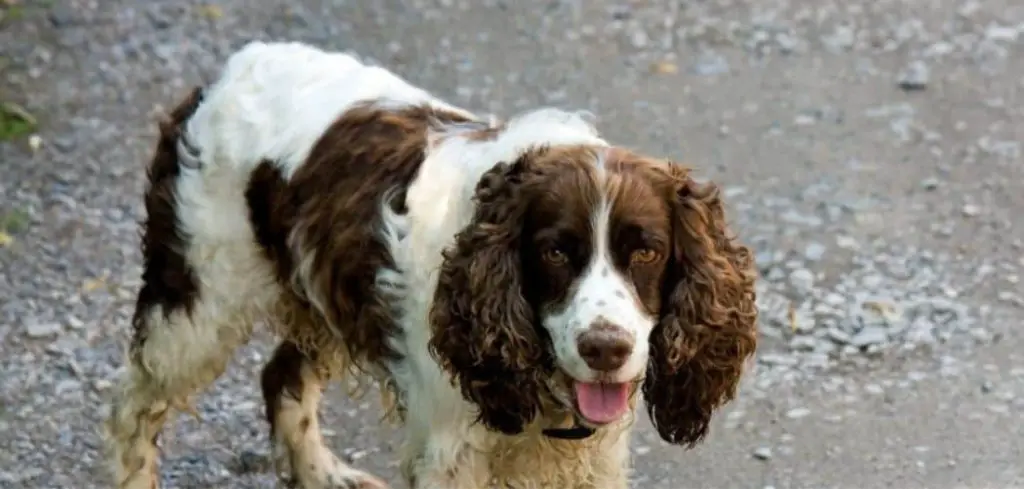When your dog suddenly becomes sluggish and refuses food, it can feel like something is very wrong. These symptoms may point to a range of medical or emotional issues, some of which require urgent attention.
We outline the common reasons why your dog has low energy and not eating, what you can do at home, and when to seek veterinary help.
Dog Is Low Energy and Not Eating — Why It Happens
Low energy and appetite loss in dogs often signal an underlying health issue, ranging from mild to severe. Infections, digestive problems, chronic diseases, pain, or emotional stress can all lead to a dog becoming lethargic and skipping meals.
Dogs may also feel drained due to dehydration, medication side effects, or environmental stressors. Even seemingly minor issues like weather changes or boredom can contribute.

Dog Is Low Energy and Not Eating: Common Causes
Gastrointestinal Upset
Stomach issues are one of the most frequent reasons dogs feel too unwell to eat or play.
Upset tummies from eating something bad, viruses, or parasites can drain their energy and leave them disinterested in food.
You might see vomiting, diarrhea, or signs of abdominal pain like restlessness or a hunched posture.
If the cause is mild, like dietary indiscretion, symptoms may pass in a day or two.
But prolonged GI upset can lead to dehydration and weakness, especially if your dog refuses food and water.
Infections (Bacterial or Viral)
Infections like kennel cough, parvovirus, or leptospirosis can cause a dog to become suddenly low energy and skip meals.
Even a urinary tract infection can make a dog feel off and reduce their appetite.
Fever, shivering, discharge, or changes in breathing can be clues.
Young puppies and senior dogs are especially vulnerable to infections and can deteriorate quickly.
Pain or Injury
A dog in pain will often lie around more, act withdrawn, and avoid eating.
Pain may come from arthritis, dental disease, soft tissue injuries, or internal issues like pancreatitis or bloat.
Look for signs like limping, whining, sensitivity to touch, or hiding.
Dental pain in particular is often missed — dogs may want to eat but stop after a few bites.
Chronic Illness
Conditions like heart disease, kidney failure, liver problems, or diabetes can cause both fatigue and appetite loss.
These issues tend to develop slowly and may include weight loss, excessive drinking or urination, or changes in coat quality.
If your dog seems generally unwell and has been “off” for a while, it’s important to have blood work and other diagnostics done to uncover any underlying disease.
Stress, Anxiety, or Depression
Yes, dogs can experience emotional distress. Changes in the household (new pet, moving, absence of a family member), separation anxiety, or lack of stimulation can make a dog act lethargic and skip meals.
Some dogs become quiet or clingy when stressed, while others become withdrawn.
A lack of appetite in these cases is usually short-lived, but it’s still worth monitoring closely.
What to Do If Your Dog Is Low Energy and Not Eating
Start by checking for any other symptoms: vomiting, diarrhea, labored breathing, gum color changes, or unusual behavior.
Encourage hydration with fresh, clean water and consider offering bland, easy-to-digest food like boiled chicken and rice if your vet approves.
Let your dog rest, but keep track of their energy levels. Avoid heavy stimulation but provide a calm, reassuring presence.
Avoid forcing food, giving human medications, or waiting more than 24 hours if both energy and appetite are down.
If your dog starts eating again within a day and perks up, it may have been a temporary issue.
But if symptoms persist, worsen, or you notice other changes, call your vet.
When to Call or Visit Your Vet
If your dog hasn’t eaten in over 24 hours and is still lethargic, veterinary attention is strongly recommended.
Call your vet immediately if your dog is also:
Vomiting or having diarrhea
Struggling to breathe normally
Showing signs of pain (whining, limping, panting)
Weak or unable to stand
Pale or bluish gums
Even if symptoms seem mild, dogs can deteriorate quickly. A timely vet visit can help uncover and treat the root cause before it worsens.
Read more: My dog is dull and not eating (What it could mean)
Key Takeaway
When your dog is low energy and not eating, it’s a clear sign that something is off — physically or emotionally.
Many causes are treatable, especially if caught early. Monitor your dog closely, offer gentle support, and don’t hesitate to get your vet’s input.
You know your dog best — if they’re not acting like themselves, trust your instincts and take action.
